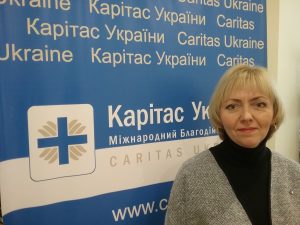
On the occasion of the World Day of Social Justice, 20 February, and with a view to the upcoming inter-governmental negotiations on the Global Compact on Migration (GCM), Caritas Europa calls on the European Union and all European governments to foster a more inclusive Europe that ensures decent working conditions for all migrant workers, including those in an irregular situation.
On 26 November 2007, the General Assembly declared that 20 February will be celebrated annually as the World Day of Social Justice.
It is important to understand, that migrant workers strongly contribute to our societies and economies, and it is time for us to also respect their dignity and recognize their rights. Migrant workers have become a cornerstone of our societies. They sustain our economies, particularly in basic sectors, such as agriculture and cleaning. Migrant workers make our societies more diverse and multicultural, and contribute to keeping our welfare systems healthy. While we value migrant workers for their work, we rarely ensure that their rights both as workers and human beings are guaranteed and enforced. Migrant workers, particularly those in an irregular situation, are especially vulnerable to labour exploitation. They may be at the mercy of dubious recruitment agencies, which require exorbitant recruitment fees, or remain trapped at the lowest levels of the labour market, where working standards are non-existent or not enforced. Fearing detection or reprisal, or lacking enough knowledge about their rights, many irregular migrant workers are often unable to seek legal remedy. According to United Nations High Commissioner for Refugees, nowadays almost six million migrants are engaged in forced labor, often in developed countries.
 According to Nataliia Holynska, anti-trafficking project coordinator of Caritas Ukraine, many Ukrainians are interested in working abroad. The scale of labor migration from Ukraine is increasing. Results of the Migration and Human Traffiking in Ukraine study conducted by GfK Ukraine on request of the International Organization for Migration (IOM) in 2017 show that 12% of Ukrainian population are potential migrant workers (who’ve already found a job abroad or plan to do it soon). Most of our compatriots want to work in Poland (40%), Germany (32%) and Italy (17%). 21% of the population are vulnerable to human trafficking, it means that people would agree to unofficial employment or would work in an illegal enterprise. As the result many of our fellow citizens become victims of labor exploitation. In the past year and a half Caritas Ukraine has found and helped 106 people who have suffered from labor exploitation.
According to Nataliia Holynska, anti-trafficking project coordinator of Caritas Ukraine, many Ukrainians are interested in working abroad. The scale of labor migration from Ukraine is increasing. Results of the Migration and Human Traffiking in Ukraine study conducted by GfK Ukraine on request of the International Organization for Migration (IOM) in 2017 show that 12% of Ukrainian population are potential migrant workers (who’ve already found a job abroad or plan to do it soon). Most of our compatriots want to work in Poland (40%), Germany (32%) and Italy (17%). 21% of the population are vulnerable to human trafficking, it means that people would agree to unofficial employment or would work in an illegal enterprise. As the result many of our fellow citizens become victims of labor exploitation. In the past year and a half Caritas Ukraine has found and helped 106 people who have suffered from labor exploitation.
«Unfortunately, today our citizens are often struggle from discrimination, injustice, social inequality, and even violence, cruelty, exploitation and human trafficking. Caritas Ukraine tries to help those people who need protection and support», – says Nataliia Holynska.
«Over the last few years, the EU and its Member States have increasingly prioritized migration control and repression to the detriment of a comprehensive labour migration policy. At Caritas, we believe migrant workers’ rights, including those of irregular migrants, should be guaranteed and enforced, because that ensures that everyone’s rights and dignity in society are fully respected», – says Shannon Pfohman, Caritas Europa’s Policy and Advocacy Director.
This week, states meet at the United Nation’s headquarters in New York to discuss the first draft of the Global Compact on Migration (GCM), a pioneering agreement designed to improve the global governance of migration. The Intergovernmental Conference to Adopt the Global Compact for Safe, Orderly and Regular Migration will take place in Morocco in December 2018. It is expected that on the conference will be adopted intergovernmental document, known as Global Compact on Safe, Regular and Orderly Migration. This agreement will not be a formal treaty and will not impose any legal obligations on the states, but it will give the leaders unprecedented opportunity to debunk the harmful myths about migrants, as well as present a common vision on how to make migration meet the interests of all our countries.
The Global Compact will focus on the division of responsibility and security of peace, dignity, protection and respect for human rights of all migrants and refugees.
Tags:

